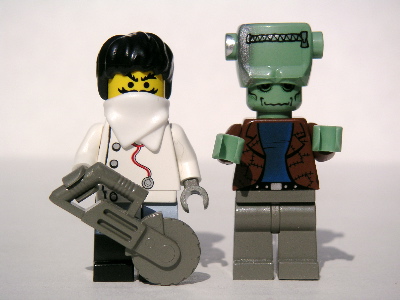Video Game Publishers Created Their Own Monster: How They Should Fight It

THQ and Electronic Arts have created initiatives to help combat the used re-sale of their games, as they aren’t too fond of GameStop and EB Games profiting on used games. Currently the two publishers are requiring secondhand users to purchase a license ($10) to enable used video games to play online.
I personally don’t think that will curb the sale of used games, and for a couple of reasons: the video game consumer is extremely savvy, and will factor that additional $10 on top of the already cheap game they are purchasing. Also, online play typically isn’t the main draw of a used game, because the online activity for that game has probably died down by the time it reached the ‘used’ bin. And finally, gamers will usually buy a used game that is top-rated and mostly offline content - these games have a more timeless quality and deliver a lot of bang for a few bucks.
The big irony here, is the Publishers are trying very hard to combat a situation they effortlessly created. They forged the used game market in two ways: by releasing yearly iterations of the same game (Sports, Shooters), and by flooding the market with too many games.
With the yearly titles, gamers clued-in that there would be a new version eventually, may as well get some return on the current title. I adopted this thinking with sports titles, and after a few months of playing NHL or Madden, it was time to trade it in. Sports games are essentially $60 rentals, and trading them in is every bit the ritual as buying them in the first place. In my experience, I wouldn’t get much trade value for sports games - retailers were often flooded with them, sometimes even refusing them outright.
As for flooding the market, with so many consoles, handhelds, and mobile games, it is nearly impossible for most gamers to shell out full price for everything they want (and they want so many - gamers are compulsive!), so they assign purchasing priorities for games. Some titles are must-have midnight-madness purchases like Halo or GTA. Other titles can be put on the back-burner while the current game queue is enjoyed. And some games will be scooped up if it’s a bargain, whether used or heavily-discounted, gamers cannot resist a good value (see: Steam Store).
And once in awhile, gamers will try to save a few bucks and trade in some games to continue their habitual gaming diet. It could be for financial reasons, or simply unloading a few games that are collecting dust. On the flip side, gamers will seek out used games for nostalgic reasons. If Nintendo managed to outlaw the sale of SNES carts somehow, I don’t know what I’d do!
So far, the EA and THQ online pass initiatives aren’t penalizing the person who plopped down $60 to buy the game, which is a good thing (unlike the accusatory DRM) . And $10 is a reasonable fee for countless hours of online play, so the person who bought it used has little to gripe about. However I think Publishers could try a few different ideas to make everyone happy:
- They could include a gift card to receive a discount on next year’s version of the franchise upon trade-in. If EA gave me a $10 discount on Madden 12 for trading in Madden 11, I’d happily make that trade.
- Some loyalty down-loadable/bonus content or achievements. DLC has been very effective at extending the life of a game, but not all games are DLC-friendly, so perhaps offer gamers extended demos or beta invites to other games just for being regularly active with a title for an extended period. You could also include some Trophies or Achievements that commemorate how long the gamer has been active with a title. There are many ways to recognize consumer loyalty.
- Publishers could offer a direct outlet for trading in their games for credit. They could send out envelopes to collect titles from gamers and then send a credit back. With Netflix (and many questionable Cash4Gold companies), people are conditioned to this kind of transaction. It is going the extra mile, but it cuts out the middle man (GameStop).
- Publishers could offer legacy games as trade bait. Many publishers have a library of games reaching back as far as three decades. A lot of these games are considered ‘Abondonware‘, because they aren’t in circulation, and are just plain dated. Publishers aren’t really making money on these older games. So if EA enticed me to swap in my NHL 10 for a disc of 12 classic games like Road Rash, Need For Speed II, James Pond, NBA Street, etc., then I’d be inclined to accept. Trading one used game for a bunch of older games works for me. EA doesn’t suffer lost $ on the resale, and they make the customer happy. It’s win-win.
- Go the upgrade option. Microsoft gives consumers the option to upgrade to the newest Windows OS at a discounted price. When a new version of the game comes out, I’d like to have the option to download it to my console, using the previous year’s disc as the enabler of the new game. And I want a discount. This route will also help ween people onto the impending digital-only future the game industry is heading towards (then used games will no longer be an issue). An excellent incentive to hold onto that disc.
- Give those game discs extra functionality. Remember when Metal Gear Solid read your game saves from other games? Well game discs should trigger content in other games. For example I am in the middle of playing Tiger Woods Golf 11, and I want to unlock some additional content. I swap in a Mass Effect 2 disc, and Commander Shepard is now inexplicably teeing it up in his spacesuit as a bonus character. Yes that example is silly cross-pollination, but there are so many ways you could proceed with this mechanic. If I have no idea what potential content my game disc will unlock in other game releases (current or future), I may be more inclined to hold onto it. I’d kick myself if I traded away the ultimate unlockable or upgrade.
That’s all I can think of for now. What’s your take?
Posted on August 25, 2010, in Computers, Football, Lego, Sports, TV, Video Games and tagged Computers, Electronics, Entertainment, Hockey, Nintendo, RTS, Sports, StarCraft, Technology, TV, Video Games, XBOX. Bookmark the permalink. 2 Comments.

I like the 2nd to last option. I buy the current Madden game and that serves as the platform to update to next years version with a fee. No new disc, all downloaded.
I’d even go a step further with sports games and offer a 2-year lifespan for them, meaning no new version for 2 years. Support the game with roster updates and DLC for the duration.